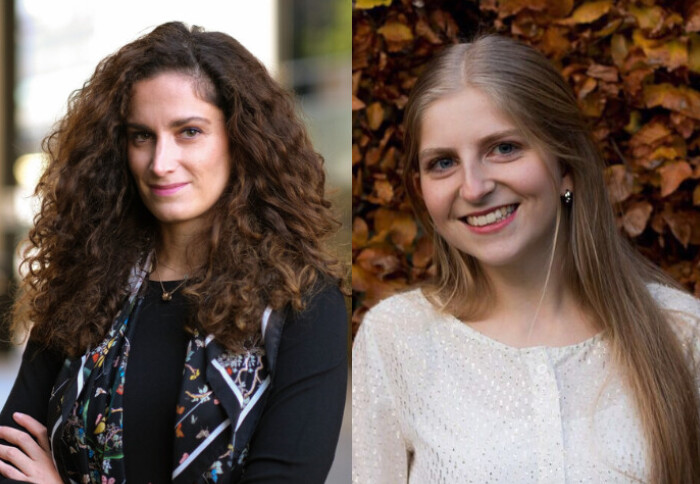Trailblazing Chemical Engineering Women

This International Women's Day we are shining the spotlight on two Department of Chemical Engineering women altering the STEM landscape.
Maria Papathanasiou
 Being a woman in STEM is not easy.
Being a woman in STEM is not easy.
Across the board, though, I think I ended up here thanks to my commitment, hard work and determination.
I lead the Life Science and Process Systems Engineering Lab, focusing on the development of computer-modelling tools for accelerated process development and optimisation of manufacturing processes & supply chains.
We work with different modelling techniques, including Machine Learning, to help industry do things cheaper, faster, and greener. Key areas where our tools pioneer the current state of the art are in pharmaceuticals manufacturing and food systems engineering.
I first came to Imperial as an MSc student, attracted by the university’s top international standing. Being an academic at Imperial, though, is, I’d say a personal dream being fulfilled.
I am lucky to belong to a Department where I am treated fairly and equally to everyone else, but I know this is not the case everywhere. Dr Maria Papathanasiou Senior Lecturer
Outside of my Department, I still (unfortunately) find myself in meetings where I am the minority (or the only woman in the room), in front of surprised faces when I say what my research is on, receiving looks full of doubt because I look too ‘girly’ for what I do (I have heard that, yes!) and more.
At the same time, being a woman in STEM is the most rewarding aspect of my job. Simply because if I can give hope and example to even one girl out there, this is a battle that I won. Surely, the landscape is changing, but we have a long way to go until we make STEM a traditional choice for females.
And this, is a personal mission.
Céline J van Haaren
 I tell myself to keep stepping out of my comfort zone, because if things get too easy and comfortable, you are not learning and not growing.
I tell myself to keep stepping out of my comfort zone, because if things get too easy and comfortable, you are not learning and not growing.
I studied for a BSc Nanobiology degree at Delft University of Technology in the Netherlands, which is also my home country.
Here, I had the opportunity to go on exchange trips and experienced living and studying abroad for the first time.
Once I was sure I wanted to do a PhD, I started looking for projects and scholarships Céline J van Haaren PhD student
Imperial had always been on my mind, as it focused on science and technology and had such a strong international recognition. And so, I applied for the departmental scholarship at Chemical Engineering…and here we are today!
My research area is focused on understanding the structural stability of biopharmaceuticals, such as monoclonal antibodies, during bioprocessing using infrared spectroscopy and spectroscopic imaging. The aim is to understand under what conditions monoclonal antibodies lose their native structure and how we can most effectively detect this through spectroscopic techniques.
I remember in high school when choosing what I wanted to study and where, I thought I wasn’t suited for a technical degree or a technical university; it was ‘too hard’, ‘too many boys’ and ‘too nerdy’. However, I chose to do it anyway (with a bit of encouragement from my dad) and I couldn’t have made a better decision.
Do not let the ‘what ifs’ hold you back.
Article text (excluding photos or graphics) © Imperial College London.
Photos and graphics subject to third party copyright used with permission or © Imperial College London.
Reporter
Navta Hussain
Department of Chemical Engineering